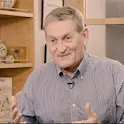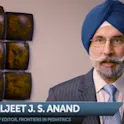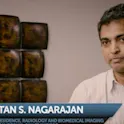
Neuroscience
27 May 2016
Setting free the words trapped in our heads
By Mônica Favre, Ph.D., Frontiers Science Writer Neuroscientists are on their way to turn a person’s thoughts into speech producible by a device, to help victims of stroke and others with speech paralysis to communicate with their loved ones. Professor Robert T. Knight, M.D., and his team at UC Berkeley are working on finding a way to decode speech imagined in the human brain. “We learned that hearing words, speaking out loud or imagining words involves mechanisms and brain areas that overlap. Now, the challenge is to reproduce comprehensible speech from direct brain recordings done while a person imagines a word they would like to say,” said Knight, who is also the Founding Editor of Frontiers in Human Neuroscience. Knight says the goal of the device is to help people affected by motor disease, such as paralysis and Lou Gehrig’s Disease. “There are many neurological disorders that limit speech despite patients being fully aware of what they want to say,” Knight said. “We want to develop an implantable device that decodes the signals that occur in the brain when we think about a word, then turn these signals into a sound file that can be reproduced by a speech device.” […]













